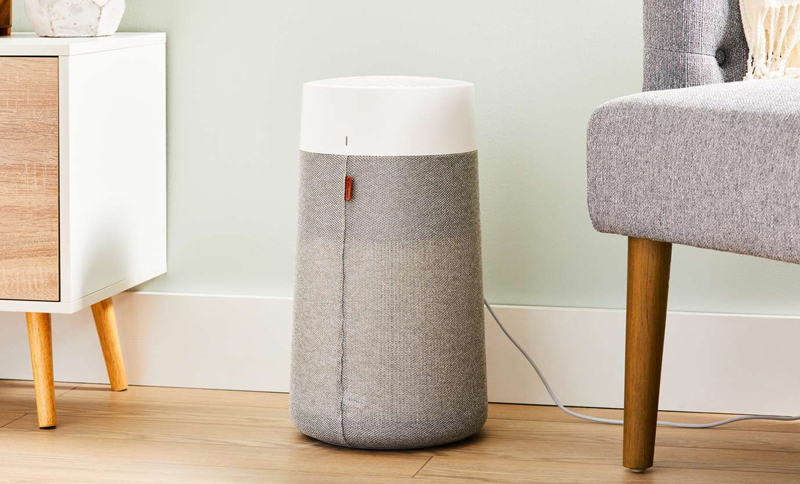
Enhancing Health with Air Purifiers
In the hustle and bustle of modern life, we often overlook a crucial aspect that directly impacts our well-being: the quality of the air we breathe indoors. The significance of clean indoor air cannot be overstated, as it directly affects our respiratory health, comfort, and overall quality of life. This is where air purifiers step in, wielding the power to transform the air we breathe and enhance our health. In this article, we will delve into the world of air purifiers, understanding their mechanisms, benefits, and how they contribute to healthier living.
Understanding Indoor Air Pollution
Indoor air pollution lurks silently, comprised of various invisible particles and gases that can wreak havoc on our health. Dust, pollen, pet dander, volatile organic compounds (VOCs), and even mold spores are just a few of the culprits that contribute to poor indoor air quality. Prolonged exposure to these pollutants can lead to allergies, respiratory issues, and a general sense of discomfort.
How Air Purifiers Work
Air purifiers operate on ingenious purification mechanisms designed to target different types of pollutants. High Efficiency Particulate Air (HEPA) filters capture microscopic particles, ensuring that even the tiniest allergens are trapped. Activated carbon filters, on the other hand, neutralize odors and absorb harmful chemicals. By understanding these mechanisms, you can select an air purifier tailored to your specific needs and room size.
Benefits of Using Air Purifiers
The advantages of incorporating air purifiers into your living space are manifold. For individuals suffering from allergies, these devices significantly reduce allergens and irritants, providing relief and better quality of life. If you or your loved ones battle asthma, air purifiers help minimize triggers, allowing you to breathe easier. Enhanced respiratory health, especially for children and seniors, is another perk, as is the elimination of unpleasant odors and potentially dangerous chemicals.
Factors to Consider When Buying an Air Purifier
Selecting the right air purifier requires careful consideration. Factors such as the device’s coverage area and Clean Air Delivery Rate (CADR), noise levels, and energy efficiency should all be taken into account. Additionally, modern air purifiers offer features like smart controls, filter replacement indicators, and air quality sensors, enhancing user experience and overall effectiveness.
Placement of Air Purifiers
Proper placement of air purifiers is crucial for optimal air circulation. Strategic positioning allows for better coverage and circulation of clean air. For larger spaces, the use of multiple units might be necessary to ensure thorough purification throughout the area.
Maintenance and Filter Replacement
Owning an air purifier comes with the responsibility of maintenance. Regular cleaning routines, such as wiping the exterior and cleaning the filters, keep the device performing at its best. Timely filter replacement is equally vital, as a clogged filter can hinder the purification process.
Other Strategies for Healthy Indoor Air
While air purifiers are a powerful tool, combining their use with other strategies can amplify their effectiveness. Proper ventilation, humidity control, and minimizing indoor sources of pollution collectively contribute to a healthier indoor environment.
Creating a Healthier Sleep Environment
The benefits of air purifiers extend to the realm of sleep. Clean, purified air promotes better sleep quality and reduces the risk of nighttime allergies. When choosing an air purifier for your bedroom, opt for one that operates quietly to ensure an undisturbed night’s rest.
Debunking Common Air Purifier Myths
Misconceptions about air purifiers abound, with concerns often centered around the generation of ozone and their supposed ineffectiveness. It’s essential to address these myths and provide accurate information to make informed decisions about using air purifiers.
Conclusion
In the pursuit of a healthier lifestyle, the significance of clean indoor air cannot be underestimated. Air purifiers serve as stalwart companions in this journey, working tirelessly to ensure that the air you breathe is free from pollutants and allergens. By incorporating an air purifier into your living space, you take a proactive step toward enhancing your health and well-being.
FAQs
Do air purifiers eliminate all types of indoor air pollutants?
Air purifiers are effective at removing a wide range of indoor air pollutants, including dust, pollen, pet dander, and even certain volatile organic compounds (VOCs). However, they might not capture all types of pollutants, such as some gases and very fine particles.
Can I run an air purifier 24/7?
Yes, most air purifiers are designed to be run continuously. Running your air purifier around the clock ensures consistent air quality and better results. Many modern models are energy-efficient, making continuous operation cost-effective.
What is the difference between a HEPA filter and an activated carbon filter?
HEPA filters primarily capture microscopic particles like allergens and fine dust, while activated carbon filters specialize in adsorbing odors, chemicals, and gases. Using a combination of both filters provides comprehensive air purification.
Can air purifiers help with smoke and cooking odors?
Yes, air purifiers equipped with activated carbon filters are highly effective at reducing smoke and cooking odors. The activated carbon chemically absorbs the odor-causing molecules, leaving your indoor air fresher.
Are there any potential health risks associated with air purifiers?
Generally, air purifiers are safe and beneficial. However, some devices that produce ozone can potentially pose health risks, especially in high concentrations. It’s advisable to choose ozone-free air purifiers to ensure safety. Always follow manufacturer guidelines for usage.









